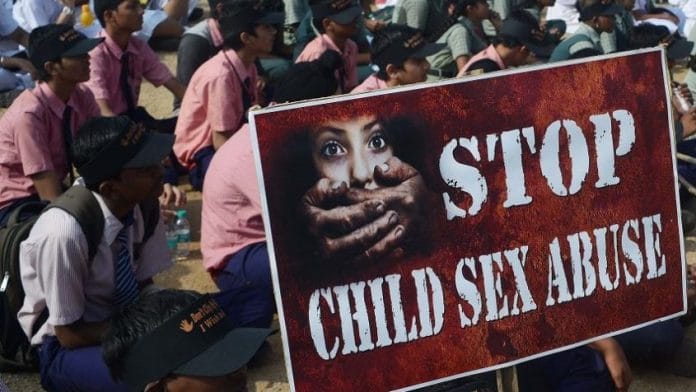Lack of legal awareness leads to low reporting of cases with police; lynching of two rape accused last month forced state assembly to amend law.
New Delhi: Arunachal Pradesh is not a state that makes headlines for child sexual abuse, but experts say that is more because of a lack of legal awareness among its people which leads to low reporting of cases.
The northeastern state has actually witnessed a jump in the number of child rape cases in the past few years, with the National Crime Records Bureau reporting 92 cases of child sexual assault in 2016 compared to 34 in 2015 — a 170 per cent increase.
So much so that earlier this month the state passed a legislation allowing the death penalty for such crimes, partly jolted by the lynching of two men accused of raping a child. This makes Arunachal Pradesh the fourth state in the country after Haryana, Rajasthan and Madhya Pradesh to have such a provision.
The two men were tea garden labourers and were accused of raping a five-year-old in Tezu district last month.
Lack of legal awareness
Experts and activists say that there is a lack of legal awareness among people in the Himalayan state, which results in low reporting of cases of child sex abuse.
According to the NCRB report, Arunachal reported only 50 cases under the Prevention of Children from Sexual Offences Act in 2016, far below the national average of 777 complaints.
In comparison, Madhya Pradesh reported 2,479 cases, Rajasthan 777 and Haryana 518.
In the absence of state-wise data on conviction under POCSO, such cases were listed as crimes against children up to 2016 in police records.
Sunil Maw, an Itanagar-based human rights lawyer, said that a lack of legal awareness among people in the rural districts saw cases often resolved through tribal customs.
Given the dismal rate of reporting of case as well as conviction, Maw is planning to file a public interest litigation seeking constitution of an independent commission to monitor cases of child welfare and rights.
Fewer judicial officers to handle cases
Arunachal Pradesh also suffers from a shortage of judicial officers, which hurts justice delivery, especially in child sexual abuse cases.
“We still don’t have judicial officers in every district — just two sessions judges and three additional sessions judges responsible for 23 districts. Since the judicial system is new, there hasn’t been much conviction,” Maw said.
Although the Gauhati High Court hears all major cases in the region, the judiciary in most of the northeastern states is in tatters, said Miguel Das, a Guwahati-based child rights activist. “We have judges who are not aware of the statutory provisions or even the POCSO Act, which is why the pendency of cases is huge,” he added.
“From 2015 to 2017, we have 14 cases of child rape that are still pending before the women’s commission, which is not functioning well,” he said.
Besides, Arunachal still does not have a State Human Rights Commission to independently monitor cases of sexual offences against children and the implementation of the Juvenile Justice Act.
According to Das, the government is chasing the criminal, not the crime.
“They should focus on primary prevention or victim-centric support system, which is absent in the northeast,” he said.






